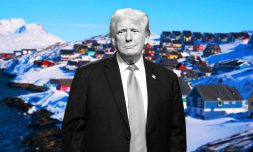As the world grapples with economic disparity, recent findings have uncovered a staggering increase in the accumulation of wealth amongst the global elite. The societal implications of this highlight the urgent need for systemic change.
During the last decade, the wealth accumulation of the top one per cent has reached unprecedented heights.
According to a recent Oxfam report, this portion of the global population has collectively grown their wealth by an astonishing $42 trillion.
To put this figure into perspective, it’s almost 34 times how much the poorest 50 per cent of the global population has grown its wealth in the same timeframe.
This stark contrast has raised concerns about the snowballing inequality gap and the potential consequences of this for society at large.
Max Lawson, Oxfam International’s head of inequality policy – who described the findings as ‘obscene’ – says they highlight the failure of governments to protect people and the planet from the catastrophic repercussions of such extreme wealth concentration.
As economic disparity widens on the back of this, many are demanding concrete action to address the issue. A proposed solution that’s gaining traction is the implementation of a global wealth tax.
@garyseconomicsHow rich people accumulate wealth over generations.♬ original sound – Gary Stevenson
This is expected to be a key topic of discussion at the upcoming G20 – which represents approximately 80 per cent of the world’s GDP and significantly influences global economic policies – Finance Minister’s Summit in October.
The fact that wealth taxation is on their agenda signals an impending shift in how the international community approaches economic inequality.
Currently, the uber-rich are taxed at effective rates of 0-0.5 per cent, as outlined by the EU Tax Observatory.




















